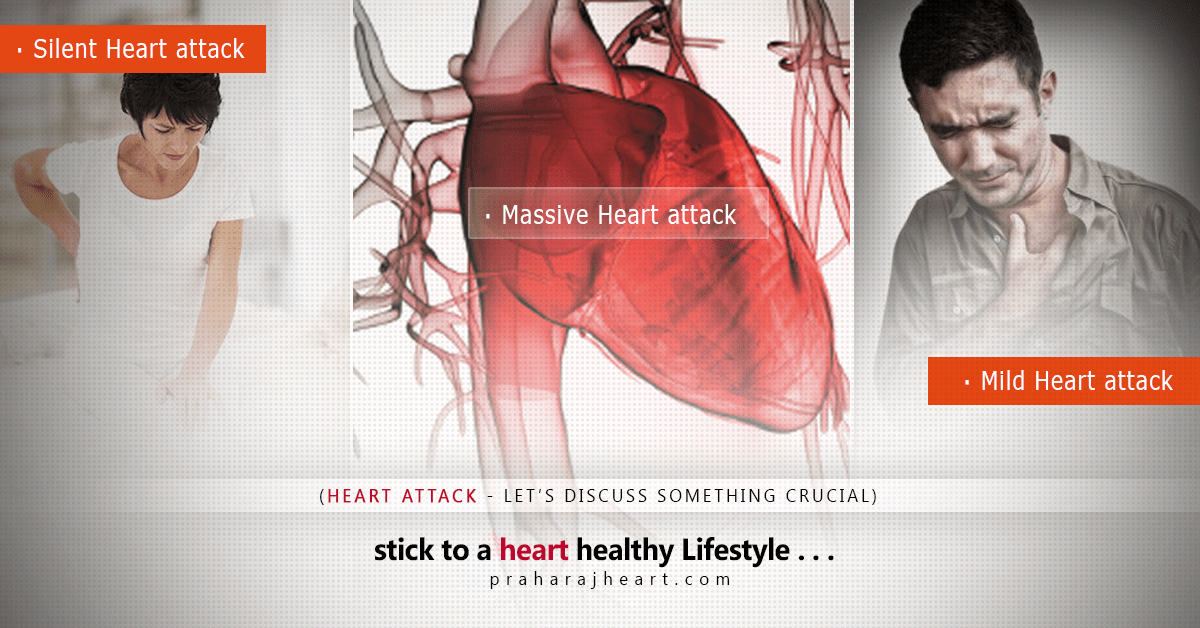Face it; heart attacks occur when the blood flow to the heart is blocked. It is a medical emergency and is typically caused by blockages in blood vessels and blockages in the coronary arteries. Simply put; reduced and blocked blood flow to the heart damages the muscle and causes a heart attack. If in case the blood flow is not restored immediately the muscle begins to wither and die.
Let’s understand the whole concept of heart attack from a layman’s point of view

The blood clot gets lodged in the blood vessels or heart when the blood flow to the heart is severely reduced. People with coronary heart diseases and with a buildup of plaque in their arteries are at a major risk for heart attacks.
For the uninitiated; plaque typically stands as the combination of cholesterol, fat and some other substances, which gradually build up within the inner lining of the artery walls. Medically speaking; this condition is known as “hardening of the arteries.”
The umbrella term ‘heart attack’ is often mistakenly used to denote a condition where the heart has suddenly stopped beating. This condition can be called as ‘cardiac arrest. Keep in mind- while heart attacks may lead to cardiac arrest however the heart doesn’t always stop beating during a heart attack.
Time to face the facts now
It has been estimated by CDC – Centers for Disease Control and Prevention that someone in the US has a heart attack every 43 seconds.
As per the American Heart Association estimation –
- Around 1 million people in the US have a heart attack each year
- About 1 in 6 people suffering from a heart attack die as a result
- Heart disease stands as the leading cause of death
Types of Heart Attack
Heart attacks are classified into two distinct types based on the severity
STEMI Heart Attacks – These are the deadliest type of heart attacks. Also called a massive heart attack, the STEMI heart attack occurs when the coronary artery gets blocked wholly. Almost as the next obvious result a large portion of the heart fails to receive blood and thus quickly gets withered and dies.
NSTEMI Heart Attacks – NSTEMI heart attacks on the other hand occur when the blood flow to the heart is restricted but not wholly blocked. Also known as mini or mild heart attack, NSTEMI Heart Attacks causes less damage to the heart in comparison with a massive heart attack.
Silent Heart Attacks – Some people may have heart attacks with few or no symptoms and these are referred as the silent heart attacks. Although they come with few or no symptoms however silent heart attacks are not harmless and they may cause permanent damage to the heart muscle.
Complications of a heart attack
That’s right; complications often arise after a heart attack, however the severity of the complications to a large extent depends on the location and on the extent of damage to the heart. As a matter of fact; the potential complications that may arise from a heart attack may vary widely, from mild to severe to life threatening.
Below are a few heart attack complications that may arise –
Arrhythmia: This is basically an abnormal heartbeat. Arrhythmia is usually developed after a heart attack due to the damage in the heart muscles. Basically the damaged heart muscles disrupt the electrical signals that are used by the body for controlling the heart. Arrhythmias can range from mild to severe based on the symptoms –
- Palpitations
- chest pain
- dizziness
- light-headedness
- fatigue
- breathlessness
While mild arrhythmias can be controlled with beta blockers however the rather troublesome ones may need to be treated with a pacemaker.
Heart failure: Heart failure occurs when the heart becomes unable to pump blood effectively. The symptoms of heart failure may include –
- Fatigue
- shortness of breath
- swelling in your arms and legs
Usually heart failure can be treated with medication and in some severe cases with surgery
Heart rupture: This is a rather serious complication of a heart attack, which occurs in more than 10% of cases. In such case, the heart’s walls, muscles and the valves split apart after the heart attack and often surgery is required to repair the damage.
Depression: Heart attack can be stressful, scary and life-changing event and may cause depression.
Yes; a heart attack is a life-threatening medical condition in which the blood flows to the heart and then suddenly stops. Surviving a heart attack typically depends on how quickly it is treated and on its severity. Adhere to correct form of treatment and also stick to a heart healthy lifestyle for preventing future heart attacks.
